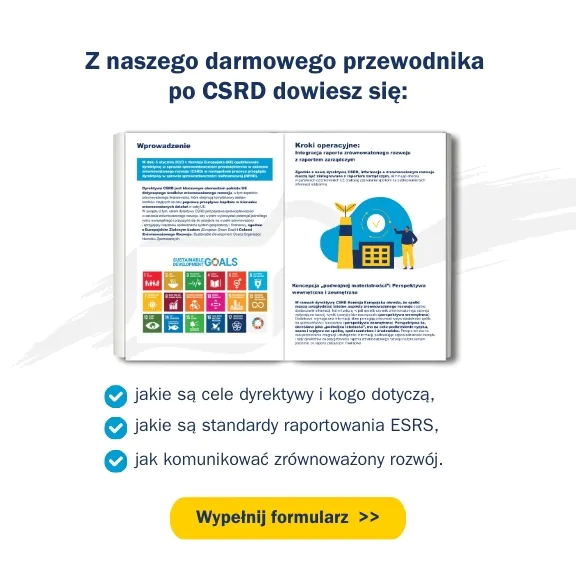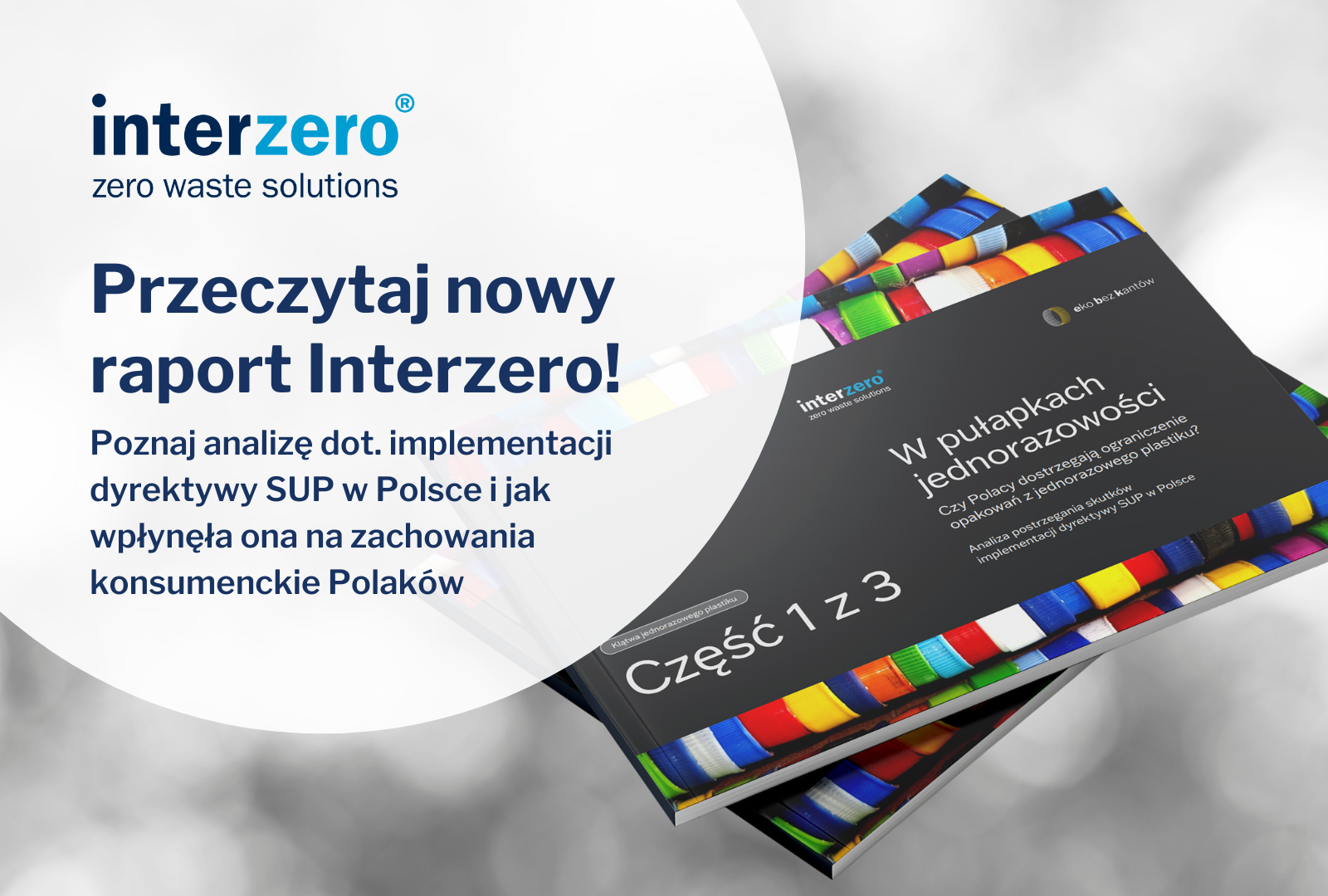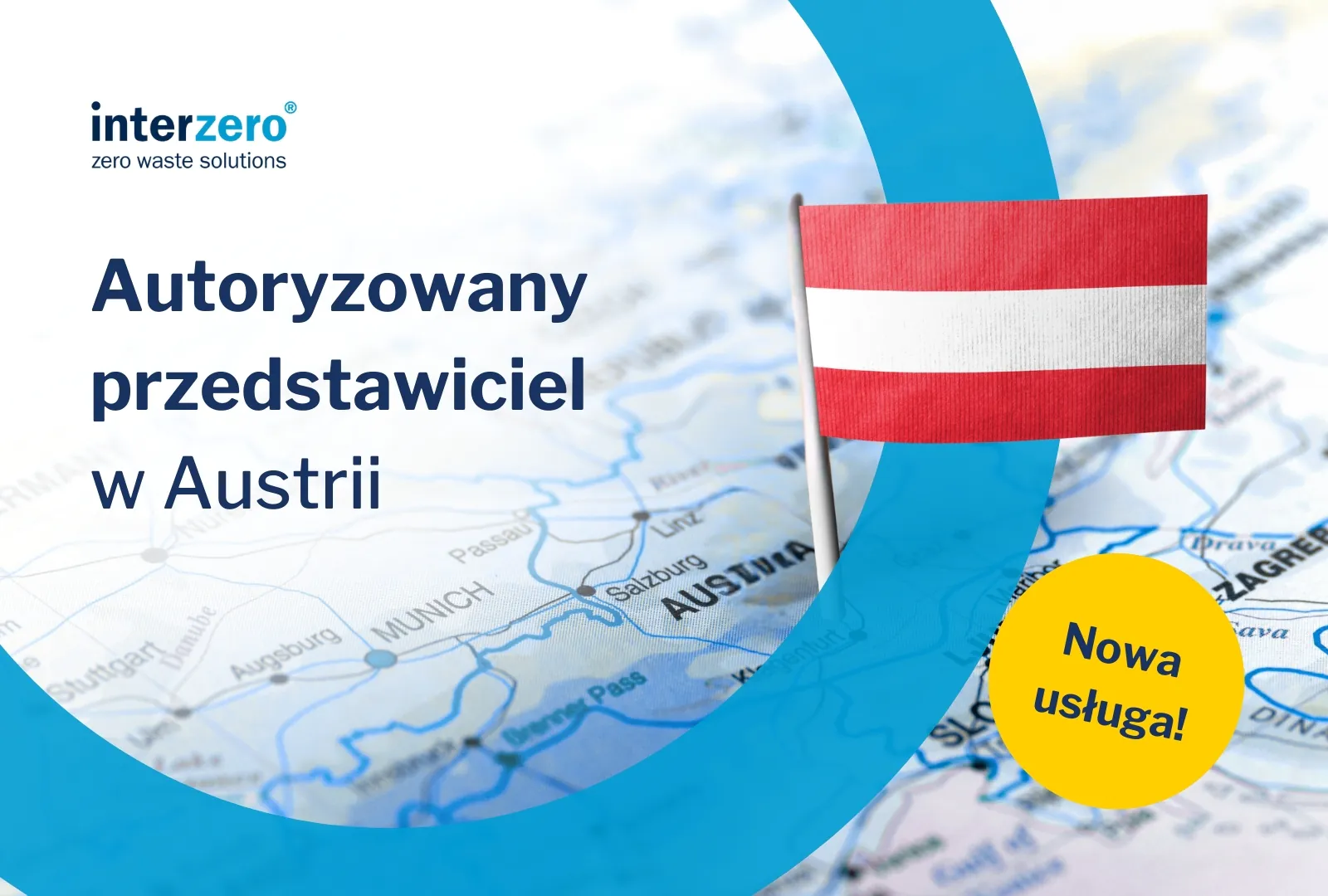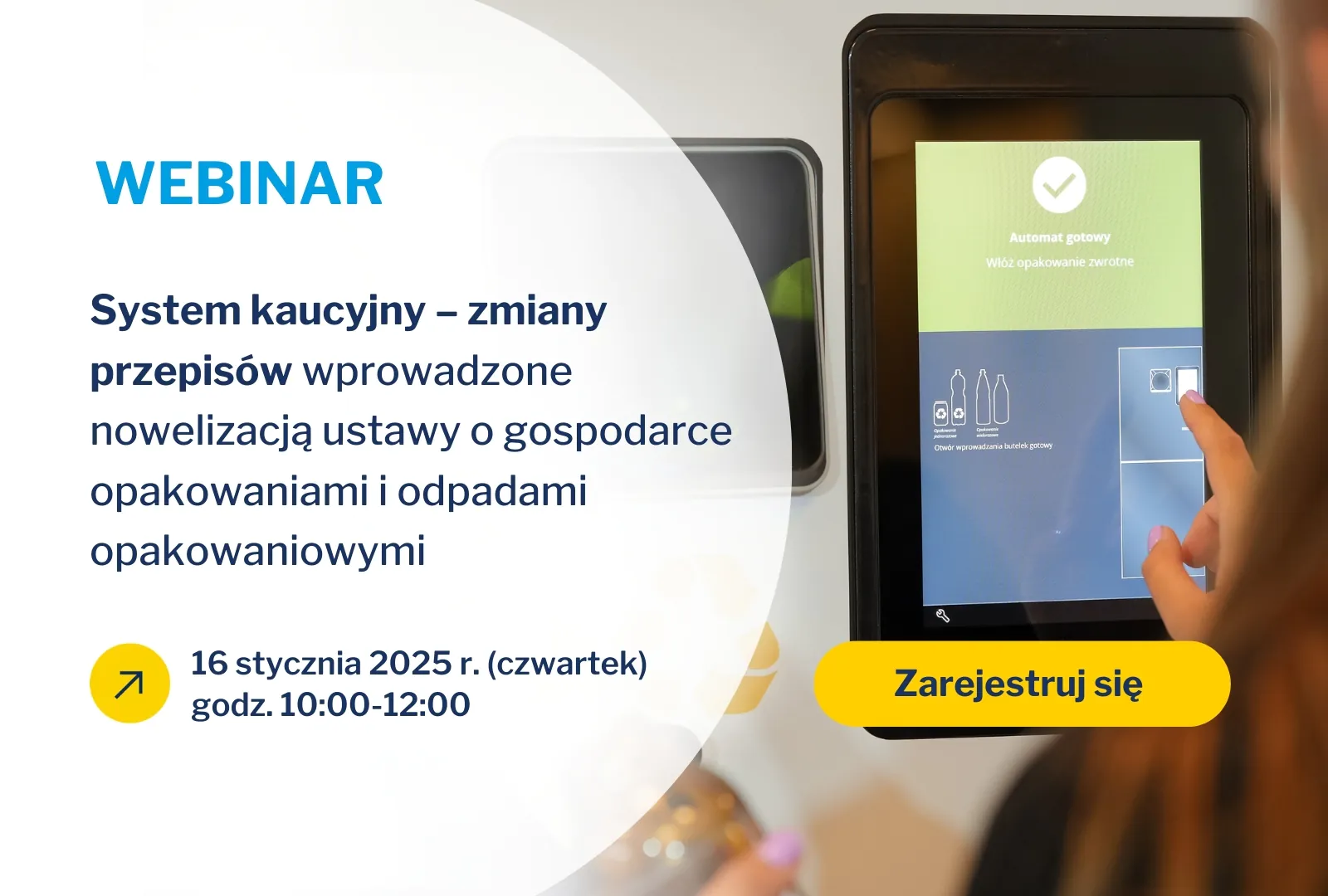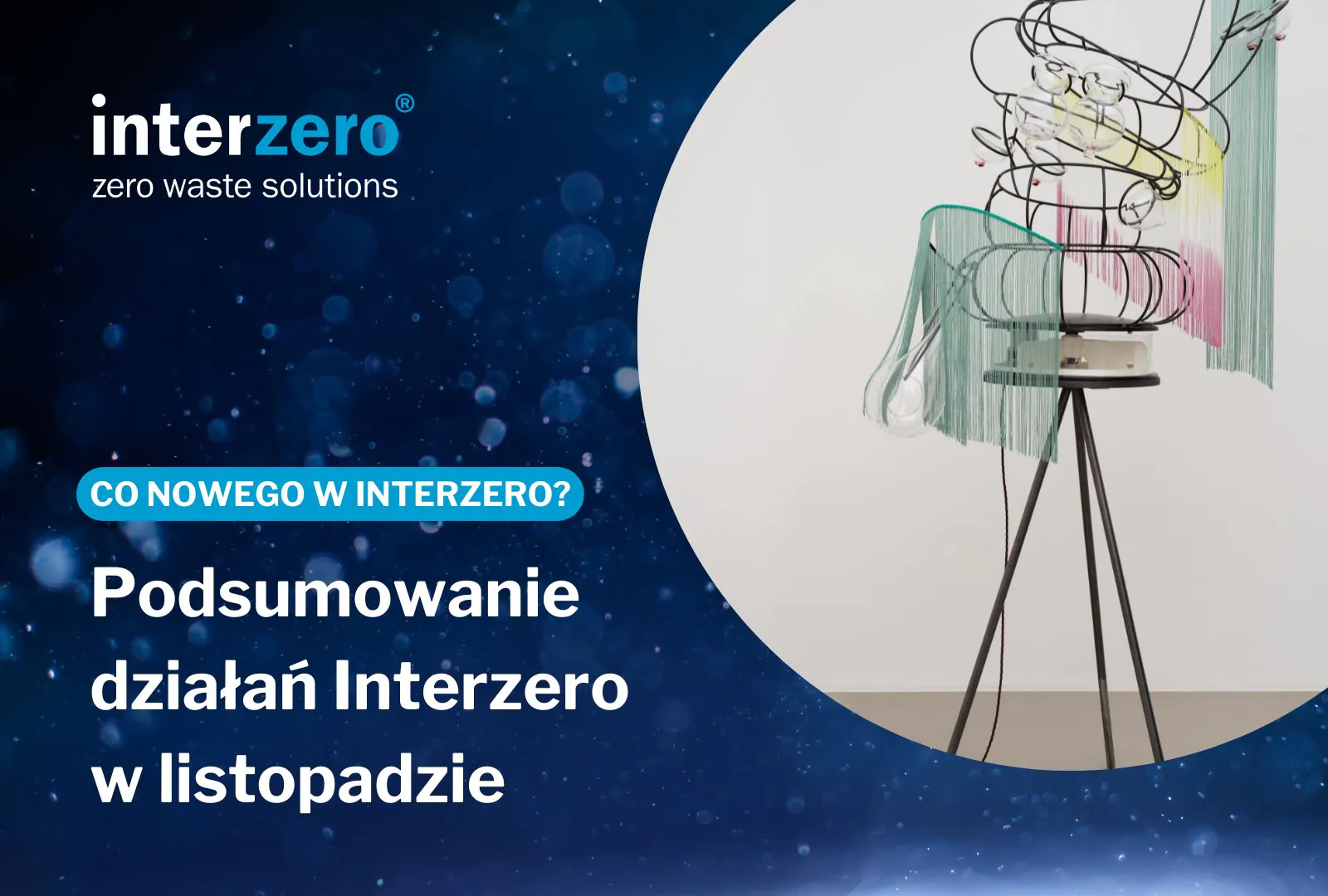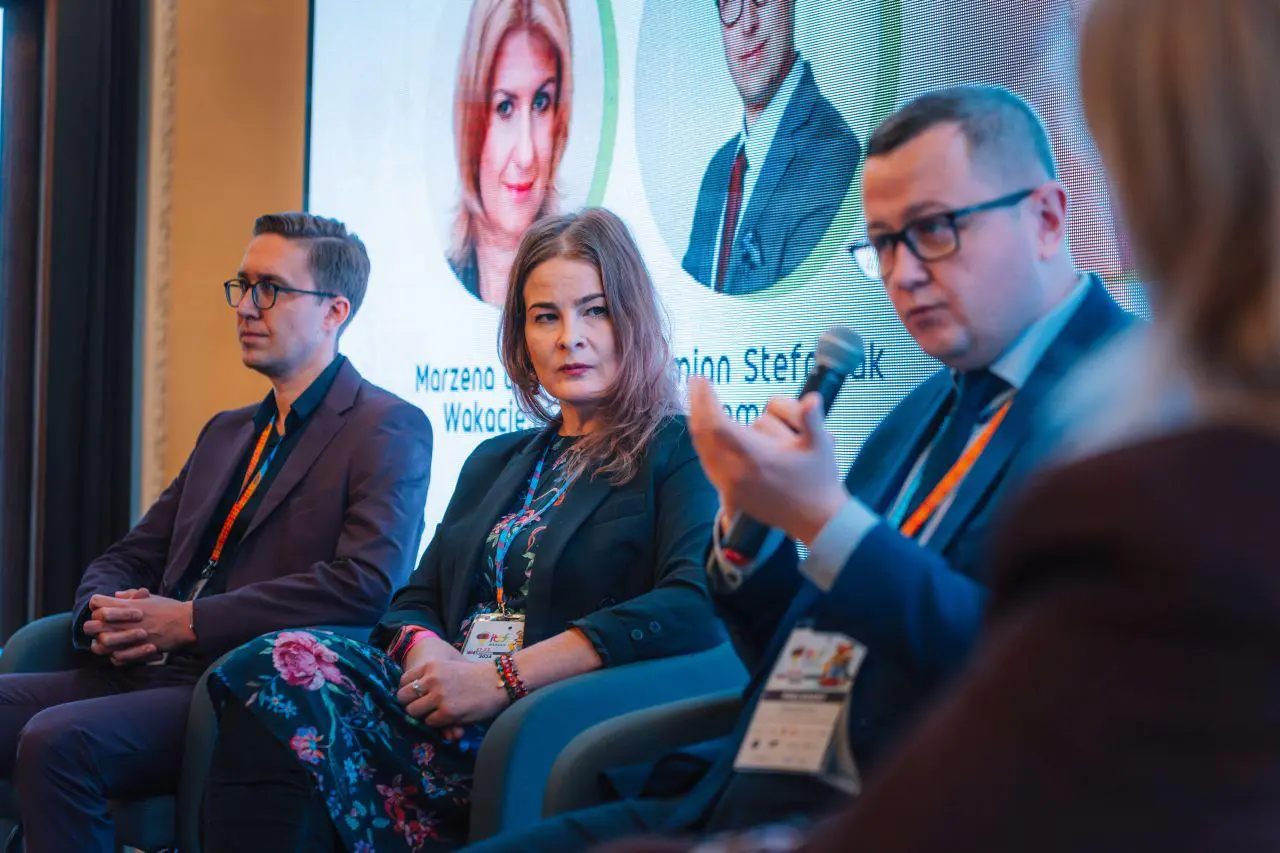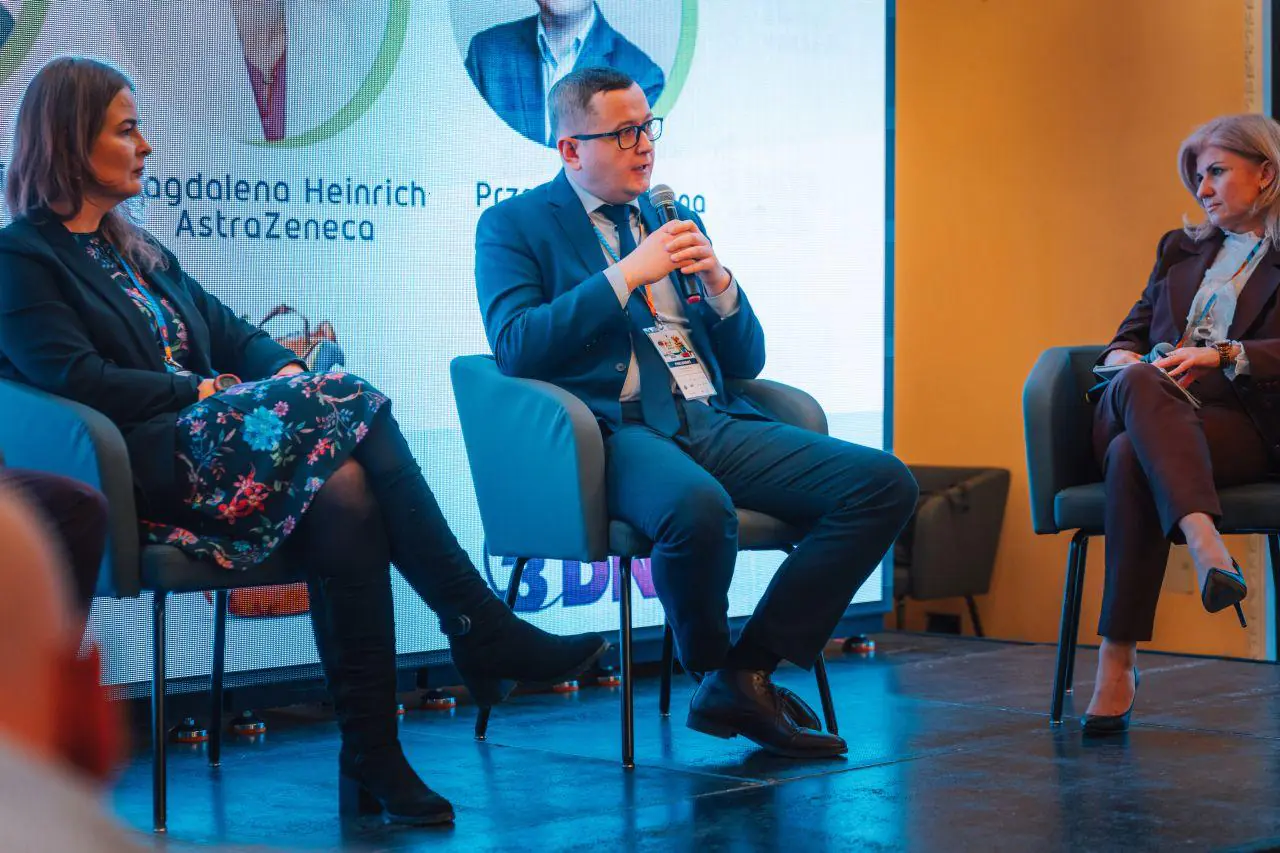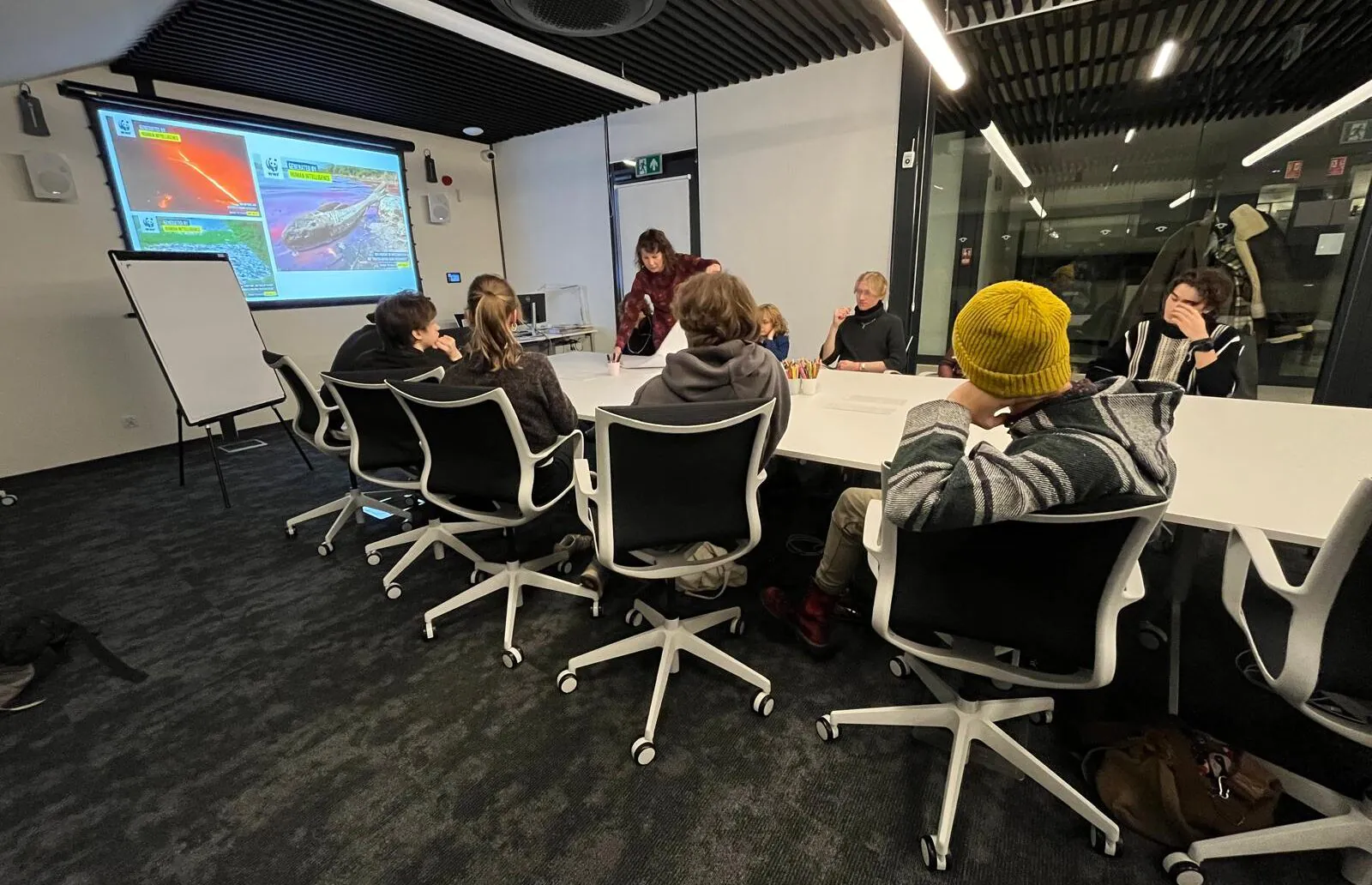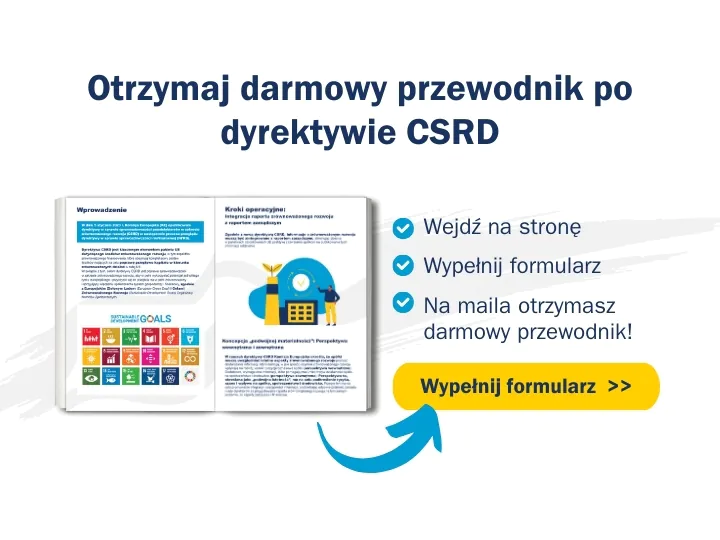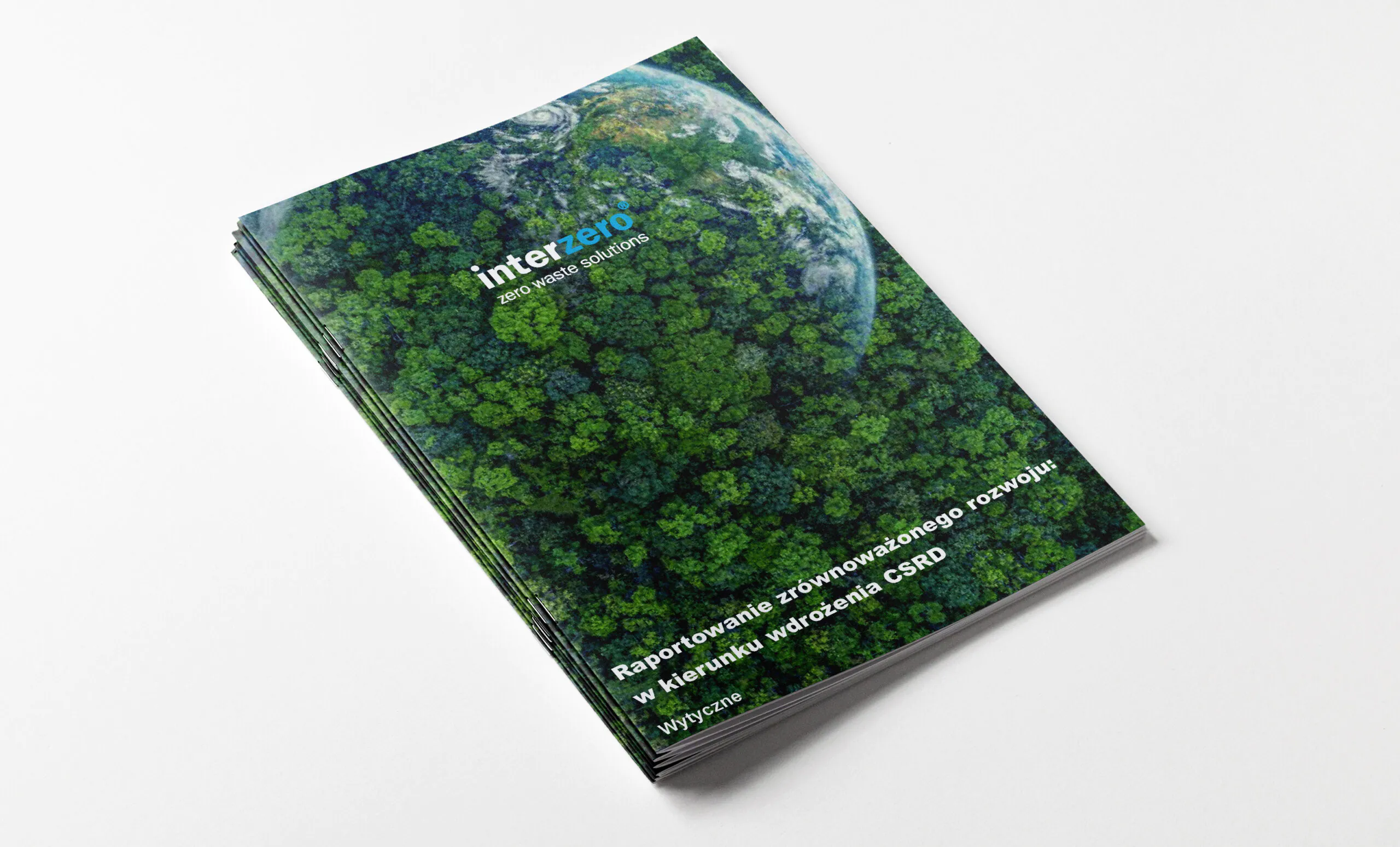New product fee rates for glass packaging - significant reductions from 2025
Glass bottles collected under the deposit system will be subject to a lower product fee than assumed. The new product fee rates result from the regulation of the Minister of Climate and Environment, which came into force at the beginning of 2025.
Lower product fee for glass bottles covered by the deposit system
On January 1, 2025, an amendment to the regulation of the Minister of Climate and Environment came into force, which significantly reduced the product fee rates for glass packaging collected under the deposit system. According to the new regulations, for each kilogram of reusable glass bottles, those introducing them will pay :
- PLN 0.01 (instead of PLN 0.10) in 2025,
- PLN 0.05 (instead of PLN 1) in 2026,
- PLN 0.25 (instead of PLN 5) in 2027 and subsequent years.
Let us recall that the previous regulations provided for uniform rates for all types of packaging covered by the deposit system. So what is the reason for this change?
Reduction of the product fee due to the higher weight of glass packaging
The amendment to the regulation was intended to make the product fee rates more realistic . As emphasized in the justification for the draft of the new regulation, the weight of a glass bottle is many times higher than the weight of a PET bottle or a can of identical capacity. Based on the data cited by the Ministry of Climate and Environment, the weights of half-liter packages covered by the deposit system are as follows:
- PET bottle - 13 g,
- drinks can - 14 g,
- glass bottle - 315 g.
This means that per 1 kilogram of packaging there are:
- 77 PET bottles,
- 71 cans,
- only 3 glass bottles.
In line with the principle that it is the number of packages that litters, not their weight , the product fee rates for glass packaging have been significantly reduced.
Discover Interzero's comprehensive services for deposit system participants >>
Environmental justification for reducing the product fee for glass packaging
The reduction of the product fee for glass packaging was dictated not only by economic issues, but also by ecological ones. The use of reusable packaging has a positive impact on the environment and brings us closer to the realisation of the idea of circular economy . The use of returnable glass bottles reduces the scale of production of new bottles, and thus reduces carbon dioxide emissions, electricity consumption and raw materials .
Maintaining the current, uniform product fee rates for all these types of packaging could cause those introducing them to abandon their use and replace "expensive" reusable glass with much "cheaper" single-use plastics. Giving up reusable glass bottles would be a step backwards, moving us further away from the transition to a circular economy.
See also:
- 9 months delay in the deposit system. What does this mean for the packaging industry?
- Sielaff Bottle Machines - the best machines for the deposit system
Sources:
- Regulation of the Minister of Climate and Environment of 24 December 2024 amending the regulation on product fee rates for individual types of packaging, https://isap.sejm.gov.pl/isap.nsf/download.xsp/WDU20240001960/O/D20241960.pdf.
- https://legislacja.rcl.gov.pl/projekt/12389300/katalog/13079739#13079739
Merry Christmas and a Happy New Year!

Christmas wishes
On the occasion of the upcoming Christmas, we would like to extend to you our heartfelt wishes of prosperity, a unique atmosphere, warmth and an abundance of all goods.
May the joy and peace of Christmas, as well as the sense of private and professional fulfilment, accompany you throughout the New Year.
Best wishes from Interzero Group in Poland
On December 24, Interzero offices will be open until 12:00

Shortened workday on Christmas Eve
Ladies and Gentlemen
We would like to inform you that on December 24, 2024, Interzero offices (Warsaw, Łódź, Kraków) will be open until 12:00.
On New Year's Eve we will be working regular hours.
Interzero Team
Together we do good, or the Noble Parcel 2024 at Interzero

Together we do good, or the Noble Parcel 2024 at Interzero
Once again, employees of the Interzero Group in Poland got involved in the Szlachetna Paczka project. Thanks to their donations, it was possible to buy gifts and necessary items for a family from Krakow.
We would like to thank the coordinators of this year's edition - Alicja Kowalska, Edyta Mantorska, Joanna Nowak, Anita Janiec, Klaudia Szymańska and Monika Krysztofińska - for organising the collection and Jarosław Dymek, Katarzyna Kacprzak, Aleksandra Stolarczyk, Aleksandra Świątek, Paulina Dulak and Joanna Marek for wrapping the gifts. We also owe a big thank you to all Interzero employees for supporting the campaign. Thanks to you, the magic of Christmas will come to another home!
We strongly encourage all those who were unable to participate in Szlachetna Paczka this year to support the organization with donations here . Together we can make the holidays joyful for even more families!
The SUP Directive, or a Half-hearted Revolution
The SUP Directive, or a Half-hearted Revolution
Even though the provisions of the SUP Directive have been in force in Poland for over a year and a half, most Poles have not noticed any significant change in terms of packaging, plastic reduction or the availability of alternatives to disposables - according to the latest data presented in the first part of the report "In the traps of disposableness", entitled "The curse of disposable plastic", prepared by Interzero.
The revolution has passed and few people have noticed it - this is how, in a few soldierly words, one could sum up the effects of the entry into force of the so-called Single-Use Plastics Act (hereinafter also referred to as the "SUP Act" - from Single-Use Plastic). Only 13% of respondents declared that they knew what the SUP directive was , what are its assumptions and goals, and what tools will be used to implement them. However, it is not about the awareness of Poles, but about the low effectiveness of the mechanisms implemented in Poland, which were supposed to help prevent waste and reuse products. One of them is the additional fee imposed on plastic packaging, effective from 1 January 2024, which was supposed to encourage us to use reusable packaging for drinks and food, similarly to plastic bags, which we have been paying for several years. The problem is that
that 42 percent of respondents never even noticed these additional fees . In contrast, as much as 56% systematically ignore them because they are usually so low in relation to the amount on the receipt (on average a few dozen groszy, the most - around PLN 2 per item), that they do not encourage giving up the convenience that the vast majority of respondents see in disposable packaging. "You don't have to wash them, return them to any point or restaurant, or carry them with you in case of spontaneous decisions to order a takeaway meal" - respondents also indicated during in-depth focus studies conducted independently by Opinia24.

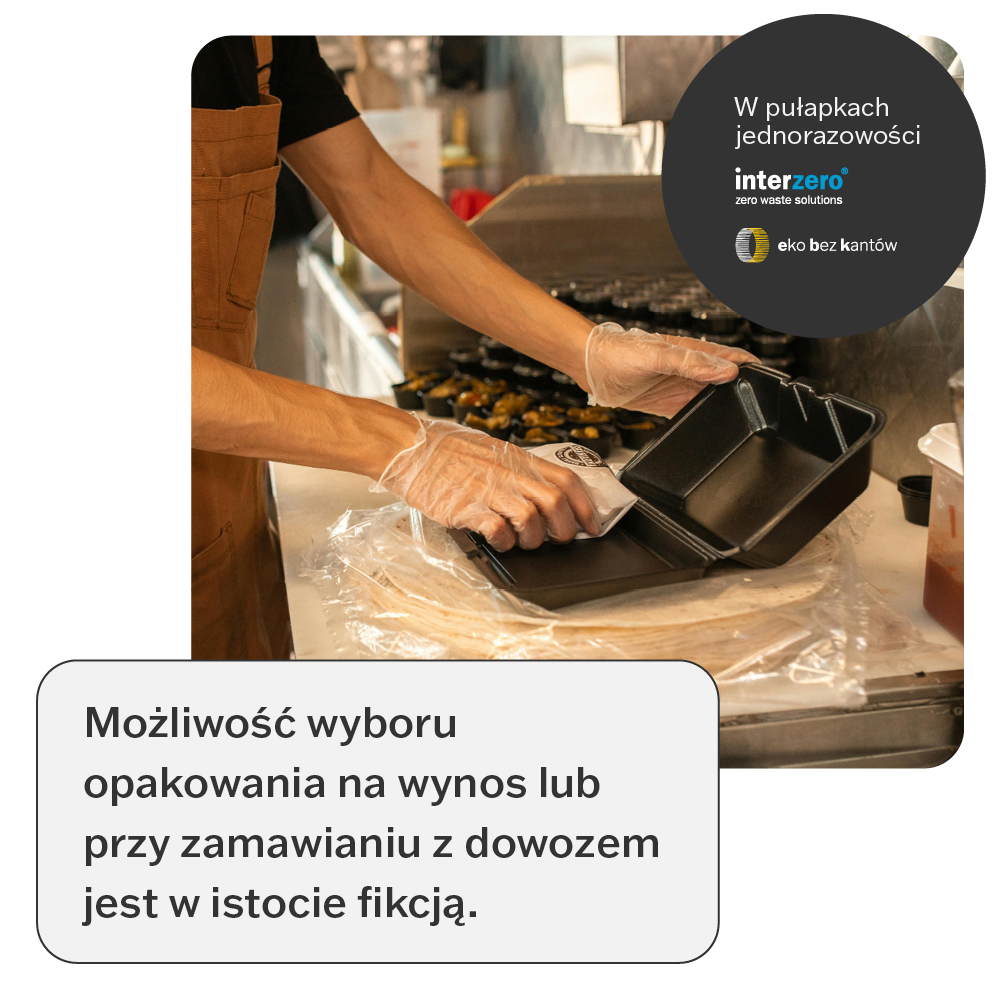
Reusable - still few incentives
Unfortunately, from the perspective of respondents, offering an alternative type of packaging in catering establishments is also a fiction. It turns out that this obligation is implemented more in theory than in practice - the vast majority of respondents (79%) have never encountered the possibility of choosing a different, more ecological packaging in a restaurant or when ordering takeaway. Only one in four consumers has ever encountered information about a legally guaranteed (precisely under the SUP directive) alternative in the form of reusable packaging. This was confirmed directly by the respondents themselves - "Only the choice of cutlery, whether you want additional plastic. This is the only choice I have in the application. When I come and take away, no one asks me either. Or whether to give a bag or take it in your hand" - said one of the participants of the qualitative research. - "Usually there is no such option, it is simply one option available in a given place. For example, a "Chinese" has its own containers, a pizzeria - pizza cartons and no one asks if we want something else. I didn't have a choice," the second one chimed in. "[...] I'll be honest, since July 1, I've ordered many times, over 15 times or more, and no one either in the restaurant or over the phone has offered me anything like that," another respondent pointed out.
What do the packaging we throw away say about us?
In the first part of the report "In the traps of reusability", entitled "The curse of single-use plastic", we will also read a lot about the eating habits of Poles: what they order most often, where and how they place orders (by phone, apps, in person), what they pay attention to when looking at the packaging offered to them, and what they think about reusable packaging. And these are just some of the conclusions from the qualitative and quantitative studies that were to help diagnose and describe the state of implementation of the directive on single-use plastics in Poland. The qualitative studies included interviews with 24 people, the quantitative CAWI studies were conducted on a nationwide representative sample of 1,000 people. You can read the entire publication here: https://ekobezkantow.pl/raporty/w-pulapkach-jednorazowosci/
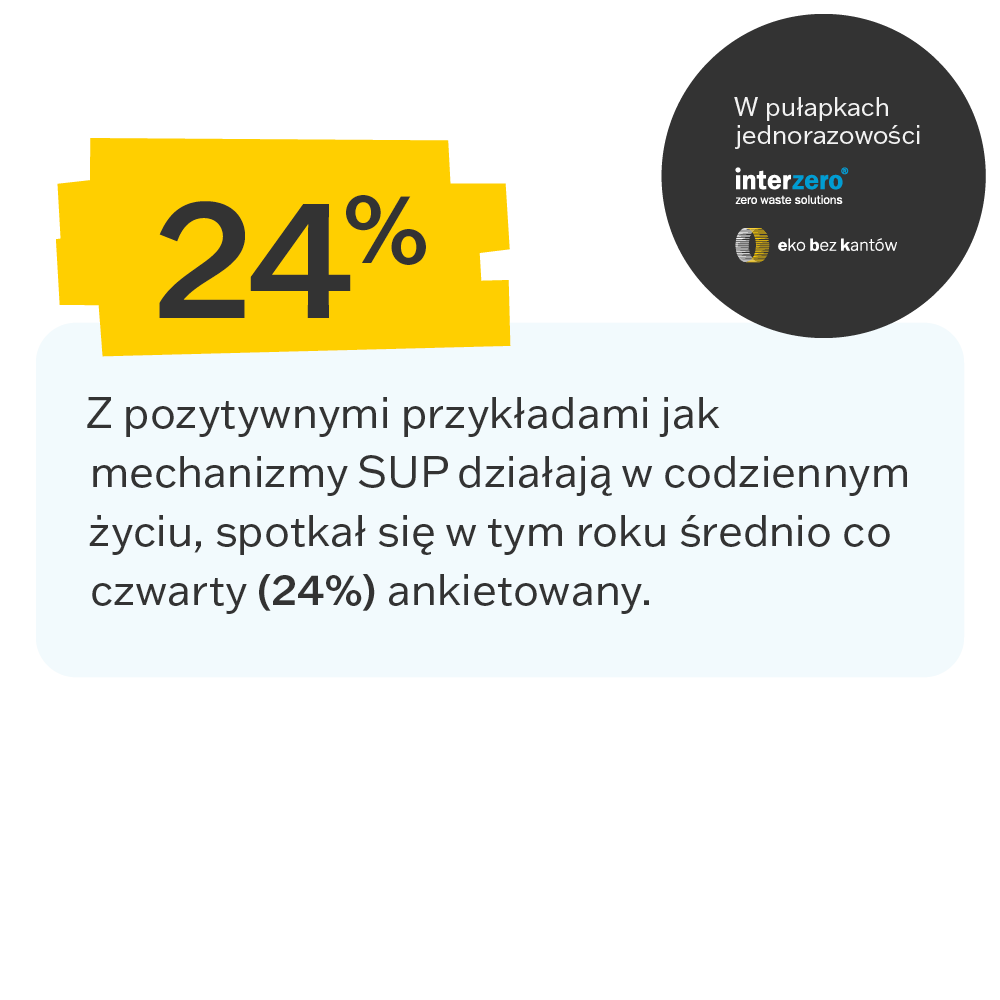
About Eco without edges
In 'Eco without corners' we talk about ecology without bending the truth. We deal with myths, fake news and half-truths. Our goal is to explain why waste should be segregated, not just how to do it properly. "Eko bez kantów" was created from the belief that in a world full of disinformation and greenwashing, a reliable source of reliable information is needed. We cover topics such as sustainable development, recycling, circular economy and legislation related to waste management. We discuss the impact of packaging, batteries and electro-waste on the environment, as well as ways to reuse them as valuable resources.
New EPR regulations in Austria | Authorised representative
Polish entrepreneurs selling products and packaging to Austria should be careful - since 1 January 2023, this country has introduced EPR regulations, which are the equivalent of the Polish EPR. They focus on 2 main issues: licensing of packaging and establishing an authorized representative in Austria. How to fulfil the obligations arising from EPR? We advise.
From 2023 new EPR (VVO) regulations came into force in Austria
At the beginning of 2023, new Extended Producer Responsibility ( EPR) regulations came into force in Austria. They impose a number of environmental obligations on entrepreneurs selling products to Austria, the aim of which is to increase the level of recycling of packaging and product waste and to minimise the impact of entrepreneurs' activities on the environment.
Are you selling products to Austria? Here are your obligations under the EPR (VVO) regulations
From 1 January 2023, entrepreneurs not established in Austria who introduce certain categories of packaging and products to the Austrian market must meet strict legal requirements . According to the Austrian EPR, every person introducing them is obliged to:
- registration with the Austrian Federal Environmental Agency (equivalent of the Polish entry in the BDO register),
- submitting periodic reports on the quantity or weight of introduced products and packaging,
- participation in the waste collection and recycling system in Austria,
- paying a licence fee depending on the type and quantity of packaging or products introduced to the Austrian market.
Importantly, entrepreneurs cannot fulfil these obligations on their own - the lack of a registered office in Austria means that they must appoint an authorised representative in Austria (Bevollmächtigten), who will fulfil the obligations of the introducer on their behalf and be responsible for contacts with local authorities.
Who does the EPR regulation apply to in Austria?
The obligations under the EPR apply to any company not based in Austria that sells the following product categories to Austrian customers :
- packaging, including product packaging, transport packaging and shipping packaging,
- electronic and electrical equipment (EEE),
- batteries and accumulators.
The new regulations apply to both entrepreneurs based in any EU country and those outside the EU. They are mainly aimed at companies that offer their products on sales platforms, e.g. eBay, Amazon, Zalando. The obligations of the introducer specified in the EPR regulations must therefore be fulfilled by:
- importers of packaged products, equipment and batteries and accumulators to the Austrian market,
- entrepreneurs selling packaging, packaged products, equipment and batteries directly to customers in Austria using their own online shops or online sales platforms.
The EPR does not provide for quantitative exemptions - the appointment of an authorised representative in Austria is the obligation of every introducer, even if he sells only a few products or packages covered by the EPR to Austria.
Do you already have an authorized representative in Austria? Sign a contract with Interzero!
The Interzero Group has been providing professional, comprehensive environmental services to clients from every industry for over 30 years. We are present in 10 countries, including Austria, where we take over responsibilities from our clients, including licensing, waste management and recycling.
As an authorised representative of your company, we will take care of:
- registering your company with the appropriate offices,
- licensing of packaging introduced to the Austrian market,
- reporting , i.e. preparation and submission of all reports required by EPR regulations in Austria,
- ensuring the management of waste generated from packaging and products introduced by your company to the Austrian market,
- representing your company before the Austrian authorities in all matters relating to the introduced products or packaging.
By signing one contract, you will transfer to us all your obligations related to the introduction of packaging, electrical and electronic equipment as well as packaging and batteries to the Austrian market.
How do I appoint Interzero as an authorized representative of my company?
- Register on our online portal and complete your company details.
- Choose the scope of duties that we should perform on behalf of your company. Remember that packaging, electrical equipment and batteries can be covered by one contract.
- Indicate the quantities/weights of packaging and products introduced to the Austrian market.
- Follow the further instructions and confirm the contract.
Find out more about the authorised representative service and packaging licensing in austria .
FAQ
Find answers to the most frequently asked questions about appointing an authorised representative and licensing packaging in Austria.
An authorized representative is a company representative who takes on the responsibilities of introducing packaging and products to the Austrian market.
The obligation to appoint an authorised representative in Austria applies to entrepreneurs who:
- introduce packaging, packaged products, electrical and electronic equipment or batteries and accumulators to the Austrian market , selling them to individual recipients (consumers, natural persons),
and at the same time
- are not based in Austria.
Entrepreneurs introducing packaging and packaged products to the Austrian market are obliged to appoint an authorised representative from 1 January 2023.
Companies that introduce electrical and electronic equipment and batteries and accumulators into the market are required to appoint an authorised representative in Austria from 2018 and 2019 respectively.
The authorized representative of the company in Austria may be any natural or legal person who:
- has its registered office or delivery address in Austria,
- is registered with the BMK (Bundesministerium für Klimaschutz, Umwelt, Energie, Mobilität, Innovation und Technologie).
The condition for appointing a given entity as an authorised representative of your company is to grant it a power of attorney with a notarised signature.
The task of your company's authorized representative in Austria is to fulfill all the obligations of the introducer resulting from the VVO (German: Versicherungsverband Österreich) and EPR , i.e. the regulations on extended producer responsibility. The obligations of the introducer fulfilled by the authorized representative in Austria include:
- company registration with the Austrian Federal Environment Agency,
- submitting periodic reports on the quantity or weight of products and packaging introduced to the Austrian market,
- joining one of the waste collection and recycling systems in Austria,
- annual payment of a licence fee for introduced packaging and products.
The authorized representative does not cover the license fee - in addition to the fee for appointing an authorized representative, each company is also required to pay a fee for packaging licensing, which the authorized representative only passes on to the appropriate authorities. The full list of obligations for individual product groups can be found in the following legislative acts:
- Packaging and packaged products - Sections 16a to 16d of the Packaging Regulation,
- batteries - § 25a to 25c Bateries-VO,
- waste electrical equipment - Section 13a of the Waste Management Act 2002 (AWG 2002), Sections 21a to 21c EAG-VO.
Extended Producer Responsibility (EPR) regulations in Austria include:
- packaging and packaged goods,
- electrical and electronic equipment,
- batteries and accumulators.
Yes. According to the EPR regulations in Austria, only an entity with legal personality can be an authorized representative. Branches of companies do not have legal personality.
Take part in the training "Deposit system - changes in regulations introduced by the amendment to the Act on the management of packaging and packaging waste".
Amendment to the Act on the Management of Packaging and Packaging Waste
Act of June 13, 2013 on the management of packaging and packaging waste introduced provisions on the inclusion of certain beverage packaging in the deposit system. Deposit systems were to be launched, in accordance with the provisions of this Act, from January 2025. However, for their proper functioning, it turned out to be necessary, in accordance with the postulates submitted, among others, by entrepreneurs introducing beverages in packages, to introduce a number of additional changes to the Act.
What will we talk about during the training?
The training will discuss changes to the provisions of the Act of 13 June 2013 on the management of packaging and packaging waste introduced by the amending act adopted in December 2024, including, among others, the postponement of the launch of deposit systems and the related consequences, changes in the scope of beverages covered by the deposit system, changes in the method of collecting deposits, and the inclusion of uncollected deposits in VAT.
Detailed topic scope:
- Clarification of the regulations regarding obtaining permits to create deposit-refund systems.
- Exclusion of milk and dairy product packaging from deposit-refund systems.
- Introduction of the obligation to collect a deposit at each stage of sale of packaged beverages.
- Enabling sellers to conduct so-called reverse logistics.
- Obligation to collect reusable glass packaging by those running commercial establishments with an area not exceeding 200 m2.
- Subjecting an uncollected deposit to VAT.
- Postponement of the launch of deposit systems
The training will be led by: Pawel Sosnowski Management Board Representative for environmental regulations at Interzero
Link to registration HERE
Who should participate?
The webinar is primarily aimed at:
- Entrepreneurs introducing packaged beverages
- Specialists in environmental protection
- People responsible for managing packaging waste in retail chains
- For all those interested in the latest legal regulations regarding packaging management
We cordially invite you to participate in the webinar! Registration for the webinar lasts until: January 16, 2025, 8:00 AM.
What happened in November? Read the summary of the last month at Interzero
What happened in November? Read the summary of the last month at Interzero
Presentations at industry events, training and campaigns, and educational workshops - although the end of the year is approaching and the atmosphere of the holidays is already in the air, we are still working intensively at Interzero. We kindly invite you to read the summary of November in the Interzero Group in Poland, in which we will briefly present the most important events of the past month.
Interzero's Environmental Sustainability Dashboard with international GRI Assurance certification
Interzero's Environmental Sustainability Dashboard is now licensed by the Global Reporting Initiative (GRI)! This is another step for us to make ESG reporting easy and accessible for every company. At the same time, we want our tool to be reliable. Through the GRI Licensing Software & Tools Program, GRI ensures that our Environmental Sustainability Dashboard accurately and efficiently incorporates GRI standards, based on best practices. Key benefits of our programme include accurate sustainability reporting, helping to meet legal requirements, and attracting stakeholders - through reliable and transparent reporting. We are almost certain that even companies that will not be subject to ESG reporting will have to keep records if they want to cooperate with larger entities.
Business and carbon neutrality - Interzero in external debates
This month, Interzero had the pleasure of being a guest at the ITTF Warsaw international trade fair, one of the largest events in the tourism industry, where partners involved in the development and promotion of this sector meet. Our representative, Interzero Managing Director Przemysław Kuna took part in the panel entitled "The impact of supplier selection on the carbon neutrality of business travel. How does sustainable development policy affect business travel management". Przemysław postulated not to cross out industry entities that have not yet taken an interest in ESG. The speakers talked not only about business travel, but also about fleet electrification and infrastructure in Poland.
In addition, Przemyslaw also took part in the Rzeczpospolita debate: "How to reconcile fire with water, or the needs of business and cities towards ROP during the mobilisation of work on the act". , which took place in the editorial office of the daily as part of the "Fight for climate" series. Our expert took a specific position - as Interzero, we support a free-market and transparent model of extended producer responsibility. Everyone wants to know what they are paying for and why so much. We do not want entrepreneurs to become just an object on which further financial obligations can be imposed. We encourage you to read the article summarising the debate here .
On-site training - WIOŚ inspection is no longer scary!
At the end of November, Łukasz Pachucki conducted the second in-person training at our headquarters in Łódź, this time under the slogan 'Environmental Protection Inspection Control in an Enterprise'. We are very happy that we managed to implement this project in smaller groups. The exchange of knowledge, experience and the opportunity to ask any questions to an expert allows for an in-depth study of the subject. The companies whose employees came to the training already know every step of the inspection, and thanks to the Q&A session and the possibility of consulting our expert after the training, they have prepared guidelines and plans to ensure that the inspection of the Environmental Protection Inspectorate goes smoothly. We would like to thank the instructor for the substantive workshop and all participants for their trust - we hope to see you at the next in-person training!
At the intersection of culture and sustainable development - workshops and campaigns
On the initiative of the Interzero Ecological Education Team, in cooperation with the Bęc Zmiana Foundation, on 23 November, the "Waste Architecture" workshop was held in one of Warsaw's theatres . The meeting focused on, among other things, new legal regulations concerning waste. They are inextricably linked to the creation of appropriate urban, residential and communication space. Through the prism of their own experiences from many industries, participants created ideas for new solutions that could, for example, help consumers to actively participate in the deposit system. Architects Michał Sikorski and Petro Vladimirov, as well as artist Zofia Strumiłło-Sukiennik, were invited to the workshop. The choice was not accidental - each of the presenters tackles the subject of waste in a different way. The workshops were part of the "Happiness Research Laboratory. Life after Comfort-Century', an artistic and research project.
On November 29, the Krakow Museum of Photography hosted the debate "Look! Does it work?", during which we focused on the topic of social campaigns about waste. It was a continuation of Interzero's cooperation with this cultural institution. The pretext for the conversation was Interzero's research "Between plus and minus" and "Getting into trouble", which indicate that young adults are less involved in environmental issues. The speakers included: Alicja Waszkiewicz-Raviv, who deals with visual communication and campaign effectiveness, Dominika Lenkowska-Piechocka, founder of the agency Who Will Save The Planet, and Edyta Mantorska - head of the Ecological Education Team at Interzero. The debate was preceded by a workshop for young people.
We ended the month with a partnership with BWA Wrocław on the "Limited Exhibition" project. At Plac Kościuszki 9-10 in the capital of Lower Silesia, seven sculptures by Kasia Fudakowski will be on display until February 16. One of the main themes of the exhibition is the topic of limited resources in the context of production; the artist was inspired to create the exhibition by considering how "culture and art are inextricably linked to the energy resources available on Earth and the structures of power that dispose of these resources". The artist gave control over the exhibition to the audience while limiting the energy that powers it. The question is therefore whether every visitor will be able to see the exhibition in the same form. The Interzero Ecological Education Team, in cooperation with the institution, prepared a December educational programme that fully addresses the topic of electronic waste.
Body, mind and ecology - or how to recharge your batteries with Interzero
November ended the social campaign "Charge Your Batteries" that had been ongoing since September as part of the Eko Bez Kantów project under the substantive patronage of the Małgosia Braunek Foundation, Be and in cooperation with the Mindy application. During the project, a series of free webinars took place, where participants had the opportunity to meet online with independent experts. We talked about ecopsychology, the benefits of forest bathing, somatic practices that relieve stress and a healthy diet for the body and the planet. In addition, participants of the campaign could gain premium access to the Mindy application by publishing photos on their social media in which they get rid of batteries with the hashtag #chargeyourbatteries.
November was a month full of educational, as well as socio-cultural events. We would like to thank all Interzero employees involved in the above-mentioned activities, as well as partners for inviting us to cooperate - joint intersectional workshops and debates are something that always brings people closer and provides more opportunities for development and broader education of society about the essence of sustainable development.
Black Week at Interzero Academy - Online environmental training with 50% discount!
Black Week at Interzero Academy - Online environmental training with 50% discount!
It's time for the biggest promotion of the year! Black Week at Interzero Academy is a great opportunity to gain knowledge and skills necessary in the environmental protection industry while taking advantage of unique discounts. Only from November 25 to November 29 all our online training courses will be half price!
Why choose Interzero Academy?
Interzero specialises in providing integrated environmental services. Our mission is to support companies in achieving sustainable development through innovative solutions and education. Interzero Academy is a platform that offers a wide range of training courses, tailored to the needs of professionals in the environmental protection industry.
What will you find in our offer?
- Waste Management Training - Learn how to effectively manage waste in your company and understand your responsibilities.
- Environmental Compliance Training - Make sure your business is up to date with the latest regulations. Learn more about EPR, Battery Regulation, PPWR or Deposit System.
- Air Quality and Wastewater Management Training - Gain knowledge on environmental reporting. Make sure you have the necessary permits and are operating within the law.
How to take advantage of the promotion?
It's simple! Just visit our Interzero Academy website in the last week of November and choose the trainings you are interested in. All online trainings on the website will be 50% cheaper. Don't miss this unique opportunity - the promotion lasts only from november 25 to 29, 2024!
Why is it worth investing in Interzero Academy training?
Investing in knowledge is an investment in the future. Thanks to our training, you will gain not only new skills, but also a competitive advantage on the market. Interzero Academy is a guarantee of quality that will help you achieve peace of mind in the context of compliance with environmental obligations. The knowledge acquired will allow your company to avoid administrative penalties that may be imposed when the company significantly affects the natural environment. Don't wait! Join the group of satisfied participants of our training and take advantage of the unique Black Week offer at Interzero Academy.
Use the practical guide - Sustainability Reporting: Towards CSRD implementation
Use the practical guide - Sustainability Reporting: Towards CSRD implementation
How does the Corporate Reporting Directive (CSRD) impact your organisation's operations?
January 5, 2023 The European Commission (EC) has published the Corporate Sustainability Reporting Directive (CSRD) following the review process of the Non-Financial Reporting Directive (NFRD). The CSRD is a key element of the EU package on sustainable development measures, including sustainable finance aspects, which provide a comprehensive set of measures to improve the flow of capital towards sustainable activities across the EU. The CSRD therefore aims to improve sustainability reporting in order to harness the potential of the European Single Market and contribute to the transition towards a fully sustainable and inclusive economic and financial system, in line with the European Green Deal and the Sustainable Development Goals . United Nations.
The content of the document covers the following areas:
- Introduction to CSRD,
- Reporting schedule,
- Interzero support in ESG reporting,
- Communicating Sustainability,
- Operational steps,
- Environmental, social, governance, digital and security factors.
To download the document, complete the form:
